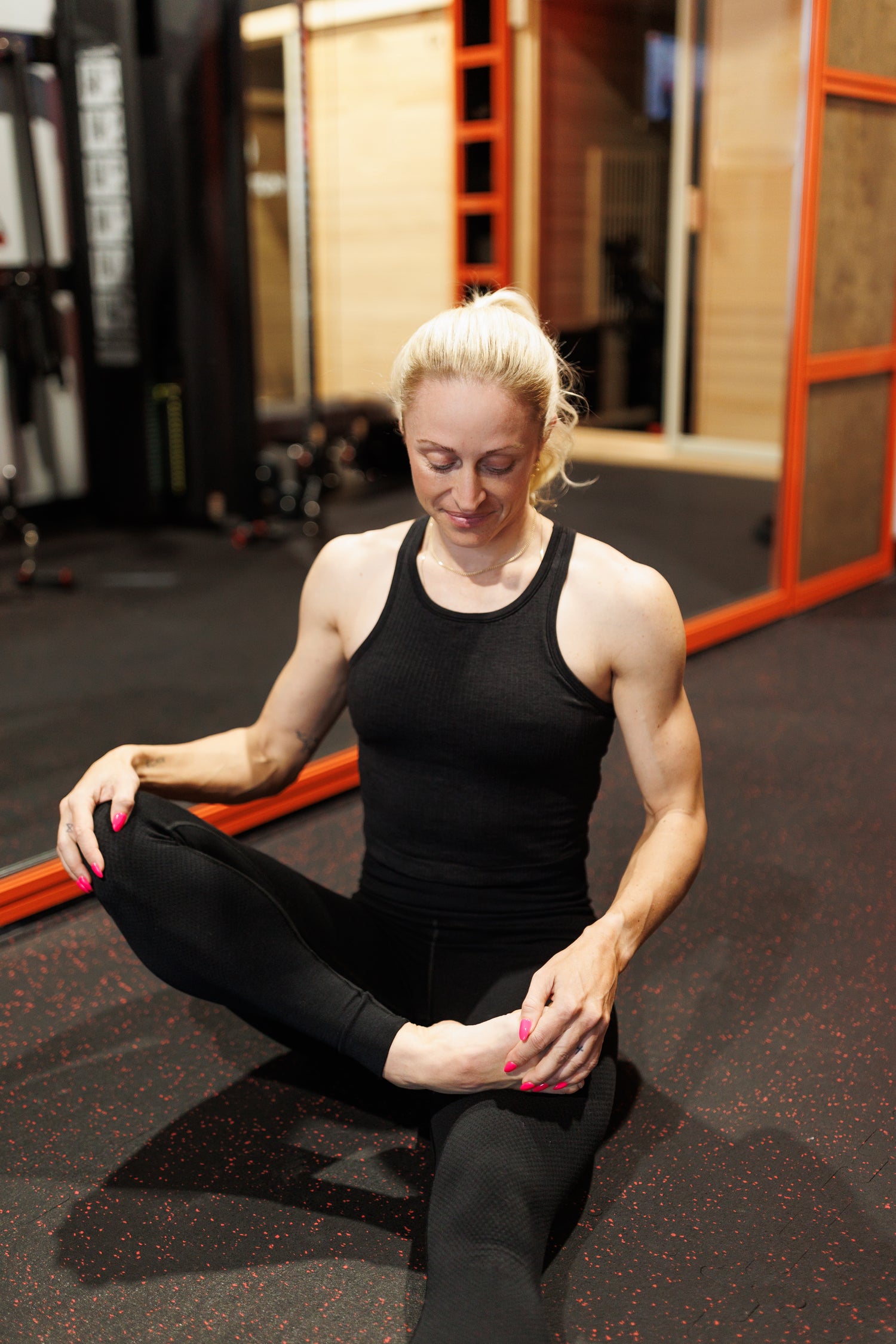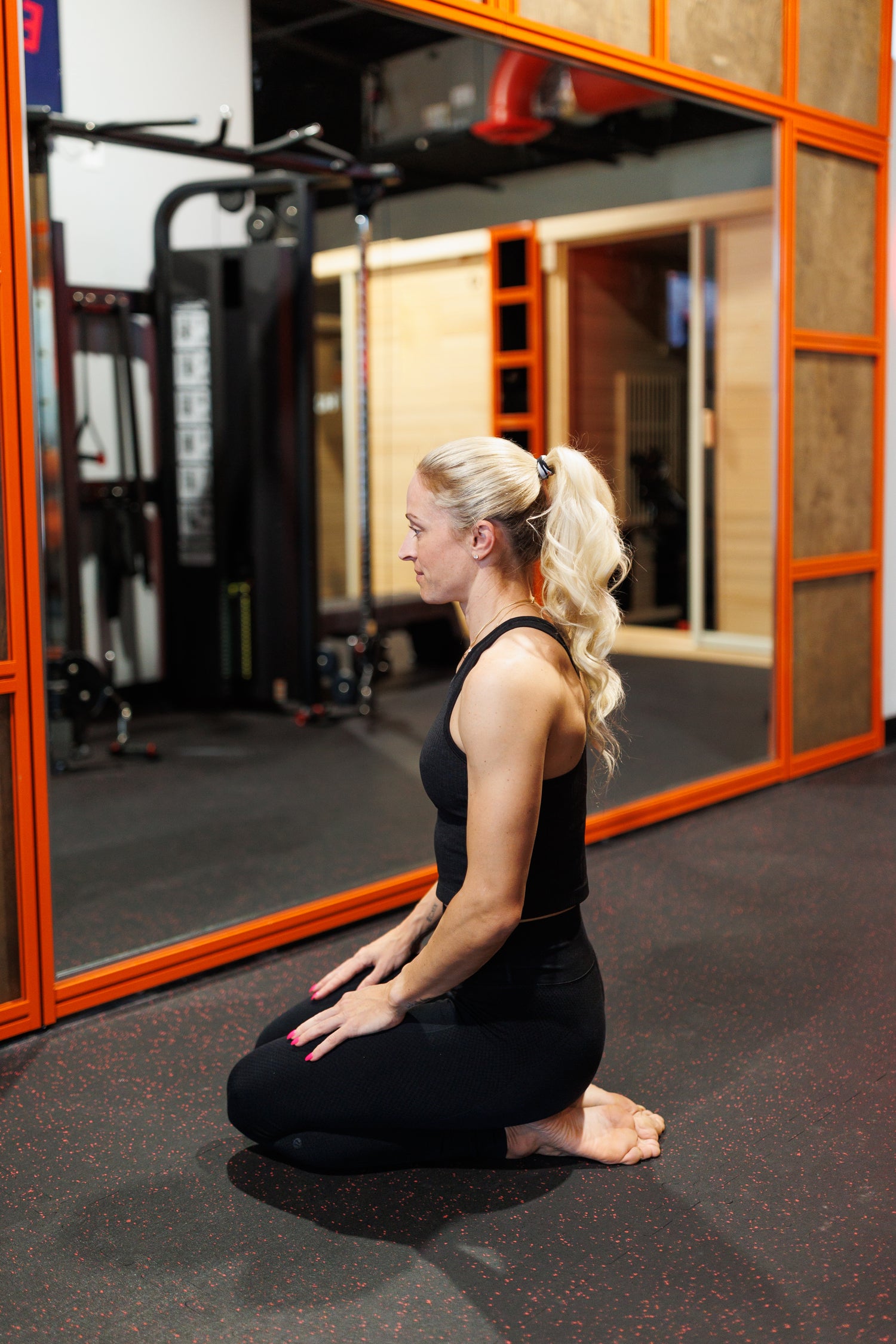Functional Mobility Assessment
If you haven’t yet taken the Functional Mobility Assessment, click on the button, below, under the Functional Mobility section.
IF YOU JUST TOOK THE ASSESSMENT, AND WERE REDIRECTED TO THIS PAGE, skip down to the section named Functional Mobility Assessment Prescriptions. You will have just received an email with your assessment results. Use those assessment results, to determine where you are functionally mobility limited, and which of the below prescriptions are appropriate for you. Each test, within the assessment, has a set of prescriptive measures associated with it.
Functional Mobility
Functional mobility is crucial for endurance athletes to enhance performance, as it allows for efficient movement through full joint ranges, leading to improved stride and pedaling efficiency. It plays a significant role in injury prevention by minimizing the stress on tissues susceptible to overuse injuries common in endurance sports. Enhanced mobility aids in quicker recovery post-training or competition by facilitating muscle relaxation and improved blood circulation. Maintaining functional mobility contributes to longevity in the sport, allowing athletes to train and compete effectively as they age. Additionally, it increases an athlete's adaptability to different training modalities and competition terrains, promoting continuous improvement.
Use the following exercises and recommendations to improve your functional mobility across these several tests
Functional Mobility Assessment Prescriptions
Shoulder Mobility Test
If you answered with 3 Stars, or less, your shoulder mobility could use a bit of work.
Use the below exercises to work on improving this.
Solution(s):
- Foam roll the lat(s) - Video HERE
- Foam roll the pec(s) - Video HERE
- Rounded reach-roll-lift (to failure) - Video HERE
- Wall Slides - Video HERE
Frequency:
Every day, and prior to any swims
Shoulder Rotation Test
T-Spine Test
If you answered with 3 Stars, or less, your T-Spine rotation could use a bit of work.
Use the below exercises to work on improving this.
Solution(s):
- Thoracic extension with foam roller - rounded back and roll (3 sets of 60-90 seconds) - Video HERE
- Thoracic extension with foam roller - without rounded back and roll (3 sets of 60-90 seconds) - Video HERE
- T-Spine Rotations - same as original assessment (3 sets of 12 reps)- Video HERE
Frequency:
Start out at 2-3 days each week, working towards once going to once a week
Pelvic Tilt Test
If you answered with LESS THAN 3 Stars, your pelvic tilt could use a bit of work.
Use the below exercises to work on improving this.
Solution(s):
- Thoracic extension with foam roller - rounded back and roll (3 sets of 60-90 seconds) - Video HERE
- Thoracic extension with foam roller - without rounded back and roll (3 sets of 60-90 seconds) - Video HERE
- T-Spine Rotations - same as original assessment (3 sets of 12 reps)- Video HERE
Frequency:
Start out at 2-3 days each week, working towards once going to once a week
Standing-Forward Bend Test
If you answered with 3 Stars, or less, your Standing-Forward Bend could use a bit of work.
Use the below exercises to work on improving this.
Solution(s):
- Standing hamstring stretch (3 sets of 20 seconds/leg) - Video HERE
- Single-Leg Hip bridge (work up to a 1-minute hold/leg) - Video HERE
Frequency:
Everyday, and additionally prior to/after any runs
Single-Leg Squat Test
IF YOU ANSWERED “FALLS INWARD”:
Use the below exercises to work on improving this.
Solution(s):
- Clam Shells (3 sets of 12 reps) - Video HERE
- Toe Taps (3 sets of 12 reps) - Video HERE
- Hip Hike (3 sets of 12 reps) - Video HERE
- Rotisserie Chicken (3 sets of 10 reps) - Video HERE
Frequency:
Three times each week, until we are sure streching and imbalances are correct. At that point, check-in periodically
———————————-
IF YOU ANSWERED “FALLS OUTWARD”:
Use the below exercises to work on improving this.
Solution(s):
- Pillow squeeze (3 sets of 10 X (10 seconds on, 5 seconds off)) - Video HERE
Frequency:
Three times each week, until we are sure streching and imbalances are correct. At that point, check-in periodically
Ankle Flexibility Test
If you answered with 3 stars, or less, your ankle flexibility could use a bit of work.
Use the below exercises to work on improving this.

Foot Stretch
Three sets of 30 seconds on each foot.
Frequency:
Every day. Start with the foot stretch and progress to the seated stretch, below.

Seated Stretch
Three sets of 30 seconds on each foot.
Frequency:
Every day. Progress to the seated stretch from the Foot Stretch. Also, if you are an office worker, try to sit at your desk with your toes pointed behind them.
Squat w/ Hands Above Head Test
If you answered with 3 stars, or less, something is still functionally incorrect.
It is most likely something within the testing that we have been doing. Double-check everything above. Once each and all of those issues have been mitigated, this will very likely also resolve.
